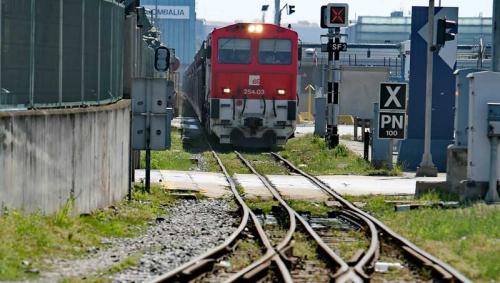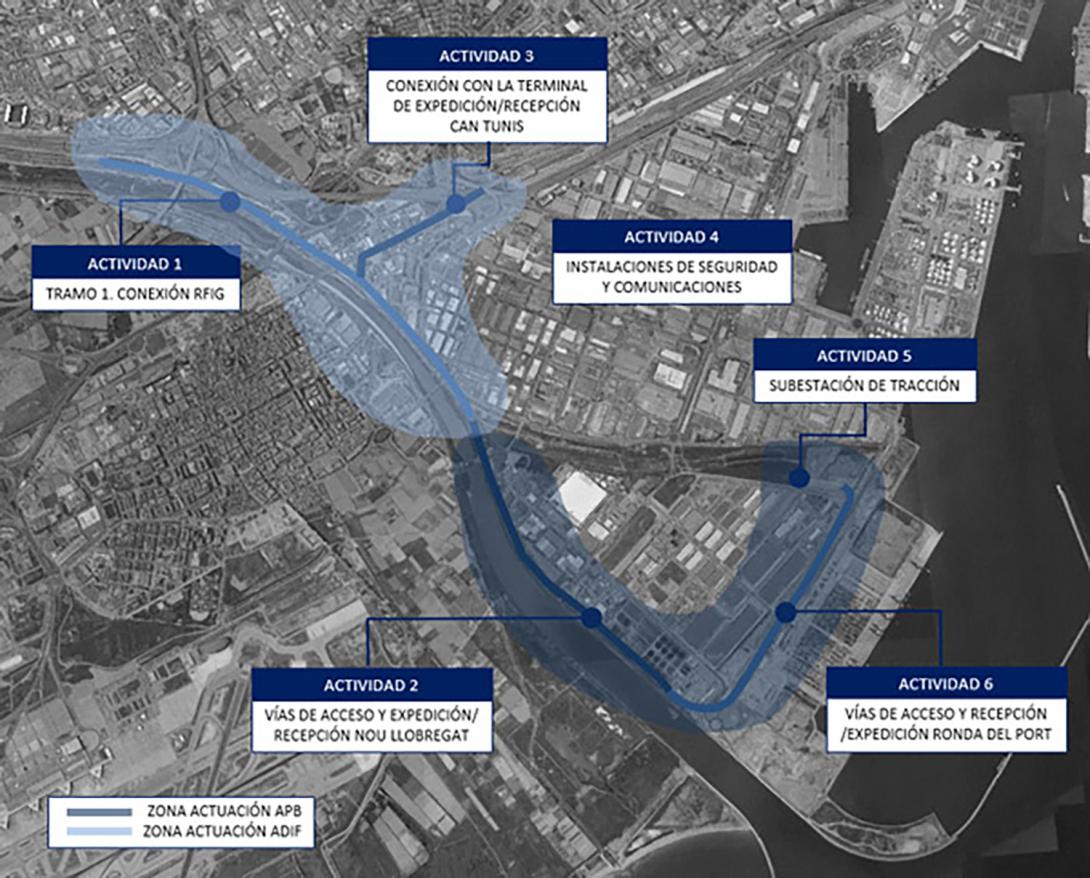
Project leader
Project partners
States involved
The project
Project focused on the construction of the new railway accesses to the Port of Barcelona, which will absorb all the railway traffic of the new expansion area of the port and of the logistics areas that generate most of the traffic that circulates through the area of the Llobregat Delta.
Improvement and savings
The new railway accesses is one of the pre-identified projects of the Mediterranean Corridor included in Annex I of Regulation (EU) No 1315/2013 of the European Parliament and of the Council, of 11 December 2013, and is identified as a bottleneck in the Mediterranean Corridor. The project makes it possible to significantly improve traffic conditions and avoid the collapse of the Barcelona metropolitan area, achieving great savings for the economy measured in terms of fuel cost, time and accident rate.
Expanding the Rail Network
The project has involved the construction of approximately 11 km of rail access to connect the new development area of the Port of Barcelona with the State Rail Network of General Interest (RFIG), and unite the infrastructure with the current dispatch/reception station of Can Tunis. The new railway accesses are projected to the south of the port area in the corridor that occupied the channel of the Llobregat river until its diversion in 1999 and will absorb more than 70% of the current railway traffic.

Project Activities
The activities were:
- Construction of a new railway access Section 1 with a single track.
- Construction of a new railway access Section 2 with access roads and dispatch/reception terminal in Nou Llobregat.
- Construction of a new railway access Section 3 with connection to the dispatch/reception terminal in Can Tunis.
- Installation of security and communication measures.
- Construction of a traction substation.
- Construction of a new railway access with access roads and reception/dispatch in Ronda del Port.
- Project coordination and management.



